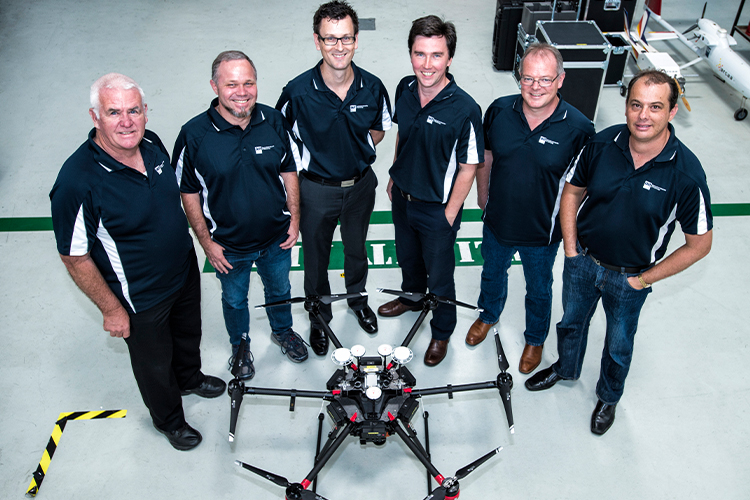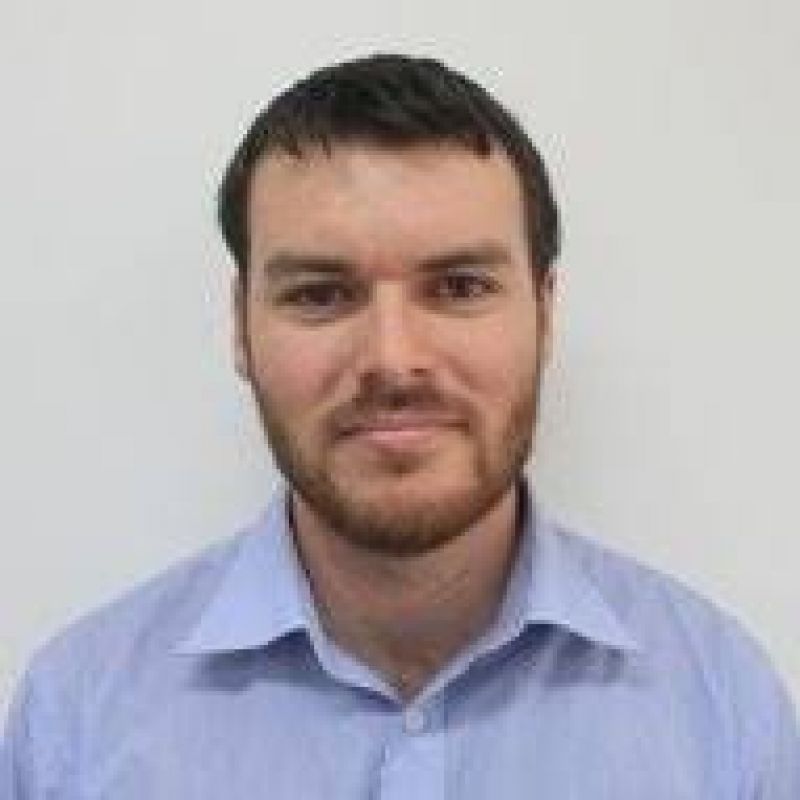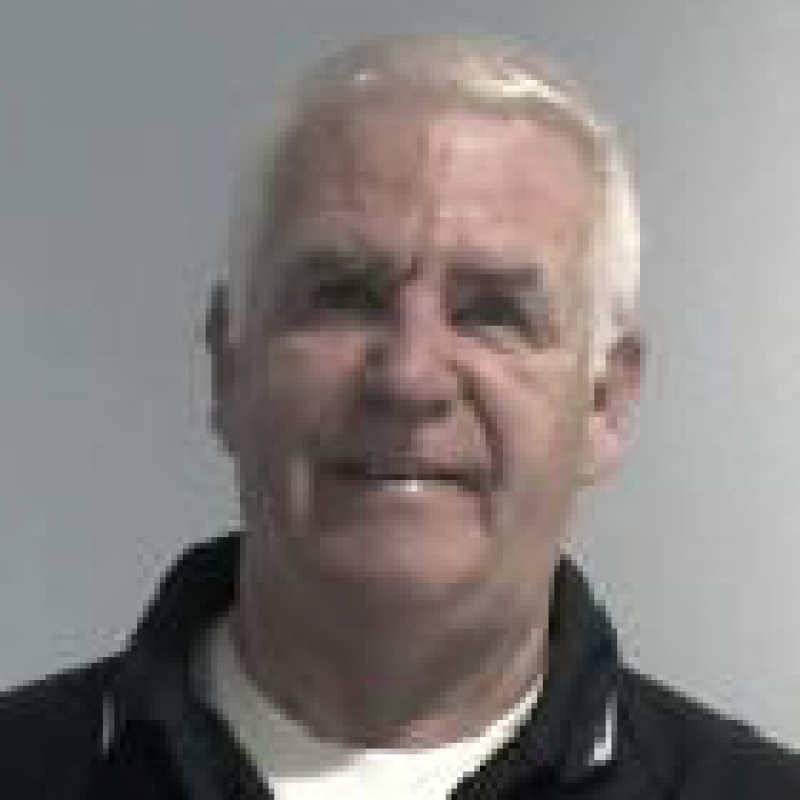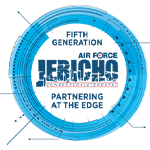About us
We provide cutting-edge research engineering and technology services including drones and aviation, energy systems, civil and structural engineering, and robotics and autonomous systems.
Our focus is to provide cross-organisational research engineering services such as design, systems integration and data collection, management and processing.
Our team consists of specialist programmers, designers, technologists, engineers, pilots and project managers, complemented by supporting world-class infrastructure assets.

Services and equipment
We provide consulting and contract development services for academic, industry and government clients in a range of areas:
- experimental hardware design
- systems integration
- battery production
- applied superconductivity
- software engineering
- data capture, post-processing, data management and analysis
- proof of concept validation and testing.
Capabilities
We provide consulting and contract development services for academic, industry and government clients in a range of areas.
Drones and aviation
As a fully certified commercial remotely piloted aircraft system (RPAS) operator (CASA.ReOC.0466), we can also operate multi-rotor RPAS (up to 25kg) anywhere in Australia, within extended visual line of sight and not greater than 400ft above ground level.
The team also has permission to operate within 3nm of non-towered aerodromes, to conduct night visual line of sight operations, and to operate up to 15m from the general public.
Overview
We own and operate a fleet of Remotely Piloted Aircraft Systems (RPAS), commonly called UAVs or drones, to support and enable a diverse range of QUT and industry projects, including sensor integration, data and image capture requirements, and data processing and analytics.The team has access and approval to operate in a beyond visual line of sight environment for the testing of systems and platforms at a dedicated test facility located within three hours of Brisbane.
Equipment
The Research Engineering Facility operates and supports a wide variety of drone, aviation and robotics systems to enable the research of QUT and our partners. We also have access to an extensive range of remote sensing equipment, much of which has been integrated onto our fleet of drones. Our team has a depth of experience in the integration of a wide variety of sensors onto robotic platforms, and can work with clients who have specific needs for their application case.
Aerial robots
| Type | MTOW | Endurance | Payload | Quantity |
|---|---|---|---|---|
| DJI M600 Pro | 15.1kg |
16 mins @ 6kg Up to 40 mins with no payload | Up to 6kg | 3 |
| DJI s800 EVO | 7kg | 12 mins @ 2kg | Up to 2kg | 4 |
| DJI Inspire 2 | 4kg | 27 mins | 560g | 1 |
| DJI Mavic Pro | 743g | 21 mins | NA | 1 |
| DJI Phantom 3 Professional | 1.28kg | Up to 20 mins | NA | 1 |
| Silvertone Flamingo (fixed wing) | 20kg | 4 hours | Up to 2.5kg | 1 |
| CyberTech CyberEye II (fixed wing) | 80kg | 4+ hours | Up to 20kg | 1 |
| Solutions | Equipment | |||
| Gyro stabilised imagery solutions |
| |||
| Geospatial and referencing solutions |
| |||
| Air quality solutions |
|
Robotics and autonomous systems
We design, build, operate and support a wide variety of robotics and autonomous systems to enable real-world research outcomes for QUT and our partners.
Overview
Our experienced robotic and software engineers specialise in taking state-of-the art research solutions and developing them to solve complex problems. We design, develop and implement novel artificial intelligence and software solutions for a wide range of projects.Equipment
Our wide-range of robotics and autonomous systems equipment enables real-world results for our partners.
| Equipment | Details |
|---|---|
| Robotic systems |
|
| Artificial intelligence (AI) techniques and machine learning | Applied research capabilities to support QUT’s strengths in artificial intelligence research and development. |
Path planning | Experience in the application of path planning techniques for a variety of platforms and conditions. |
| Perception systems |
|
| Sensor fusion | Merging data from multiple sources can assist in building a more accurate world model for robot behaviour and navigation. |
| Hardware-software integration | Experience with hardware-in-the-loop (HITL) and software-in-the loop (SITL) testing and validation |
Energy systems
Overview
We have access to purpose-built facilities and provide a wide range of energy and electrical systems testing and production services including: lithium-ion battery production with dedicated dry-rooms experimental testing and qualification of power systems energy testing of both high- and low-voltage devices characterisation of superconducting materials.
Details
Power and energy engineering
We perform testing of high-temperature superconducting (HTS) machines for maritime propulsion, power equipment and defence applications and advanced electric power system technology testing of both high- and low-voltage devices.
Lithium-ion battery fabrication
We established Australia’s first pilot plant facility producing commercial graded lithium-ion batteries. Our facility enables rapid prototyping of new battery formulations and cell types to improve the production and characteristics of lithium-ion batteries used in a wide range of applications.
Electrical and instrumentation workshop
Our team has access to assembly facilities for small Arduino projects including printed circuit board (PCB) design and construction. We enable data acquisition and instrumentation with a range of load cells, displacement sensors, laser and gauges.
Design and systems integration
Overview
We design and manufacture custom engineering solutions for niche applications for research, government and industry. With the ability to integrate a multitude of sensors to airborne and ground vehicles, we enable researchers to acquire data in ways not previously possible.
Our expertise in sensor and collection technologies allows us to extract the best performance from the systems we create. Our focus on ease of use and durability is key to achieving success in demanding environments. We take a holistic approach to how the systems operate out in the field to achieve the best result for our partners.
The team maintains compliance with regulatory authorities such as the Civil Aviation Safety Authority (CASA) for our airborne sensor integrations.
Structural engineering and testing
Overview
We have the space and the equipment needed to perform large specimen handling, manufacture, testing and destruction and can conduct testing of built environment structures, from individual components to building systems.
We have a wide range of test equipment and manufacturing abilities including a strong floor and associated heavy steel framing, large-capacity hydraulic actuators and associated instrumentation devices.
Spaces and equipment
Our facility provides many testing spaces suitable for mechanical and structural engineering testing.
- Flexible test areas including:
- field sample preparation laboratory used for materials science including surface analysis, thermal conductivity testing and exacting tolerances at 0.01 microns
- environmental chamber.
- Civil engineering areas including:
- fire and wind testing for light steel structures (working with the QUT Wind and Fire Engineering Laboratory)
- timber testing
- concrete testing
- carbon fibre testing
- impact testing (including the ARC LIEF Impact Testing Facility).
We have access to a wide range of equipment to enable mechanical and structural engineering testing including:
- 5t gantry crane
- 2.5t forklift
- 100m2 of strong floor (up to 500kN),
- six-burner gas furnace that can deliver up to 1000°C.
Data acquisition and management
Overview
Our fleet of unmanned aircraft integrated with appropriate sensors captures data in a wide range of applications including:
- photogrammetry
- orthomosaics
- terrain and surface models
- thermal and other spectral imagery
- object recognition and counting
- plant health monitoring
- biosecurity monitoring
- air quality monitoring
- media work.
Our sensor portfolio consists of high resolution red green blue colour (RGB), Light Detection and Ranging (LiDAR), thermal, multi-spectral, hyper-spectral, air sampling and video cameras and sensors.
We offer a broad range of test equipment and sensors:
- 4-point bending test
- test load from 1kN up to 3,900kN
- load cells from 3kN up to 3MN
- digital indicators with a 10 um precision
- laser sensors
- resistive linear variable differential transformers (LVDTs)
- thermocouples
- accelerometers
- vibration sensors
- three gas furnaces
- electrical furnace
- tensile coupons testing
- shaker table for earthquake simulation
- 6-degree of freedom motion controller
- custom-made test rigs.
We also structure and manage storage solutions for the resultant large datasets. Working with QUT’s eResearch group, we facilitate the creation and acquisition of working spaces, providing end-to-end solutions for data management including:
- consultation services
- acquisition of required approvals
- capture, conditioning, storage, processing and analysis of data
Locations
We have access to a range of infrastructure and equipment to support research, teaching and learning and enable real-world results.
Our expertise encompasses the latest in digital technologies, to industrial engineering and scientific analysis.
Overview
Our facility enables scaled-up research in traditional engineering, industrial biotechnology and scientific applications, testing and validation.
The site includes:
- two warehouses of 1,500m2 and 1,000m2 with specialised labs, workshops and engineering infrastructure
- office space of 500m2 with hot desks, a meeting room, a conference room and a technical library
- uncovered hard stand area of 2,000m2.
The site is suited to large-scale, heavy engineering equipment and small to medium (up to 200m2 footprint) pilot equipment.
Research
Research projects include the development of pilot equipment and processes for industry partners as well as long-term monitoring of industrial products.
The broad areas of research conducted at Banyo are:
- mechanical and manufacturing engineering
- power and energy engineering, high-voltage testing and solar applications
- applied superconductivity in maritime propulsion, power equipment and defence applications
- water and wastewater engineering, including stormwater evaluation and desalination
- environmental and ecological materials processing, including whole organism treatment
- biofuels and biocommodity production
- tropical and subtropical aquaculture
- rock preparation and crushing, thin section preparation and core handling
- plasma reactor development and Parr reactor operation
- sugar research including biomass processing and instrument development.
Our state-of-the-art pilot plant allows for a range of research and discovery.
| Capability | Description |
|---|---|
| Structural testing | A scientific and industrial lab for heavy mechanical and structural testing, including high temperature and flame conditioning. It includes a 5t gantry crane and 2.5t forklift for heavy lifting, 100m2 of strong floor (up to 500kN), and a six-burner gas furnace that can deliver up to 1000°C. |
| Electrical testing | A power engineering lab for experimental and qualification testing of both high-voltage and low-voltage devices, and characterisation of superconducting materials. |
| Geological sample preparation and analysis | A geological lab for preparing and analysing samples, with equipment for rock cutting and crushing, core logging, thin sections and soil analysis. |
| Aquaculture | A large aquarium for studying fresh-water organisms and the impact of controlled environmental factors. |
| Data acquisition | Labview data logging systems for collecting data and test reports. |
| Mechanical workshop | For construction, fitting and assembly work, with a lathe, milling machine, grinders, drill press, vice, hand tools and a large selection of nuts, bolts and different materials. |
| Electrical workshop | An assembly facility for small projects, including printed circuit board (PCB) design and construction. |
| Services | Walk-in cold room; single and three phase power; compressed air; deionised water. |
Using our services and equipment
The Banyo Pilot Plant provides services to QUT staff and students, external researchers and commercial organisations, ranging from basic technical support to commercial research. Specialist staff are available to carry out analyses, or we can train you to use the instruments to do your own work.
The Banyo Pilot Plant offers consultancy and commercial testing services to researchers and organisations on a fee-for-service basis. Please contact us to discuss your needs.
QUT staff and students
If you’re a QUT staff member or student who needs to undertake research activities at Banyo, go to project information for QUT staff and students.
Overview
Our award-winning Da Vinci research facility is purpose built to meet the unique needs of researchers engaging in aerospace automation activities.
Based at Brisbane Airport, the site includes:
- an avionics development area
- general workshop
- indoor flying area
- meeting rooms, a technical library and open-plan office space.
The site is suited to enable flight test capabilities for small drones, with access to leading technology to assist our researchers in maturing concepts from paper to flight-tested reality.
Research
We provide state-of-the-art infrastructure and services in the aerospace autonomy domain to enable research conducted by clients from academia, industry and government.
Research projects and services include:
- systems integration with a focus on emerging technologies for autonomous land (UGV) and air vehicles (UAV/RPAS/drones)
- experimental hardware design
- operations in GPS denied environments
- software engineering
- data capture, processing, and analysis
- proof of concept validation and testing.
As a fully certified commercial remotely piloted aircraft system operator (CASA.ReOC.0466), the Research Engineering Facility team based at the Da Vinci Precinct can operate multi-rotor Remotely Piloted Aircraft Systems (up to 25kg) anywhere in Australia, within extended visual line of sight (EVLOS) and not greater than 400 feet above ground level under standard operating conditions. The team also has permissions to operate within 3nm of non-towered aerodromes, to conduct night visual line of sight operations, and to operate up to 15 metres from the general public. With extensive experience in a multitude of environments, the team has flown in excess of 1,750 flights in support of research projects since 2015.
Capabilities
| Capability | Description |
|---|---|
| Indoor flying laboratory | A netted flight area equipped with a VICON motion capture system for research into collision avoidance, vision-based navigation and mapping, and operations in GPS denied environments. |
| Avionics laboratory | An avionics lab equipped with a GNSS simulator for hardware-in-the-loop and software-in-the-loop testing of experimental payloads and autopilots. |
| Mechanical workshop | For construction, fitting and assembly work, with a drill press, pan brake, vice, hand tools and a large selection of fasteners and materials. 3D printed structures can also be designed and manufactured in-house, ranging from ABS to carbon fibre materials. |
| TAAATS data feed | A real-time data feed from The Australian Advanced Air Traffic Systems (TAAATS) allowing researchers to model and develop systems such as Unmanned Traffic Management (UTM) systems using real traffic networks. |
| RPAS fleet | As operators and custodians of QUT’s ReOC, the team based at Da Vinci Precinct have access to a fleet of multirotor (DJI M600Pro, Inspire2, M210V2, Mavic Pro, s800) and fixed wing (Flamingo, CyberEye II) platforms. |
| Sensors | The team based at Da Vinci Precinct are custodians and operators of a wide range of high-end sensors typically deployed on drones (although they are also used for unmanned ground vehicles). Sensors include hyperspectral, multispectral and thermal cameras, large-format dSLR cameras, LiDAR, particle counters and air quality sensors. These are complemented by commercial-off-the-shelf or custom designed and manufactured gimbals and mounting solutions. |
| Field operations | A custom built and designed mobile operations centre (MOC), consisting of an Isuzu NPS300 crew cab fitted with an expandable rear cabin to fit a three-bay workstation. Capabilities include GPS, two-way radios, airbag suspension, 3-phase power, front and side storage compartments, in-built extendable communications mast with air compressor and in-cab controls, Honda EU65is inverter generator, solar panels and battery storage, fridge and air-conditioning. This is complemented by an Isuzu DMax crew cab 4x4 ute. |
| Services | Single and three phase power; compressed air; GPS antenna. |
Using our services and equipment
The Da Vinci Precinct provides services and capabilities to QUT staff and students, external researchers and commercial organisations, ranging from basic technical support to commercial research and consultancy.
Standard hours of operation are from 9am to 5pm, Monday to Friday, although staff are often in the field so it’s best to arrange a time with the team onsite prior to arrival. All visitors to the Da Vinci Precinct must sign in upon arrival.
The RPAS team based at the Da Vinci Precinct offers consultancy and commercial research services to researchers and organisations on a fee-for-service basis.
Case studies
Our staff

- Position
- Professor
- Division / Faculty
- School of Law
- Research field
- Law
- k.tranter@qut.edu.au

- Position
- Senior Research Engineer
- Division / Faculty
- Research Portfolio
- Research fields
- Artificial Intelligence and Image Processing
- Electrical and Electronic Engineering
- dmitry.bratanov@qut.edu.au

- Position
- Senior Software Engineer
- Division / Faculty
- Research Portfolio
- Research fields
- Artificial Intelligence and Image Processing
- Information Systems
- r.rasmussen@qut.edu.au

- Position
- Manager, Research Engineering Facility
- Division / Faculty
- Research Portfolio
- Research fields
- Artificial Intelligence and Image Processing
- Electrical and Electronic Engineering
- a.keir@qut.edu.au

- Position
- Technical Manager
- Division / Faculty
- Research Portfolio
- frank.debruyne@qut.edu.au

- Position
- Technical Manager (acting)
- Division / Faculty
- Research Portfolio
- barry.hume@qut.edu.au

- Position
- Senior Technician (Workshop Operations)
- Division / Faculty
- Research Portfolio
- glenn.atlee@qut.edu.au

- Position
- Senior Design & RPAS Technician
- Division / Faculty
- Research Portfolio
- gavin.broadbent@qut.edu.au

- Position
- Senior Technician (Electrical, Instrumentation and Controls)
- Division / Faculty
- Research Portfolio
- cameron.creevey@qut.edu.au

- Position
- Research Engineer (Robotics and Autonomous Systems)
- Division / Faculty
- Research Portfolio
- josh.esplin@qut.edu.au

- Position
- Chief Remote Pilot
- Division / Faculty
- Research Portfolio
- dean.gilligan@qut.edu.au

- Position
- Senior Research Engineer (Robotics and Autonomous Systems)
- Division / Faculty
- Research Portfolio
- dasun.gunasinghe@qut.edu.au















